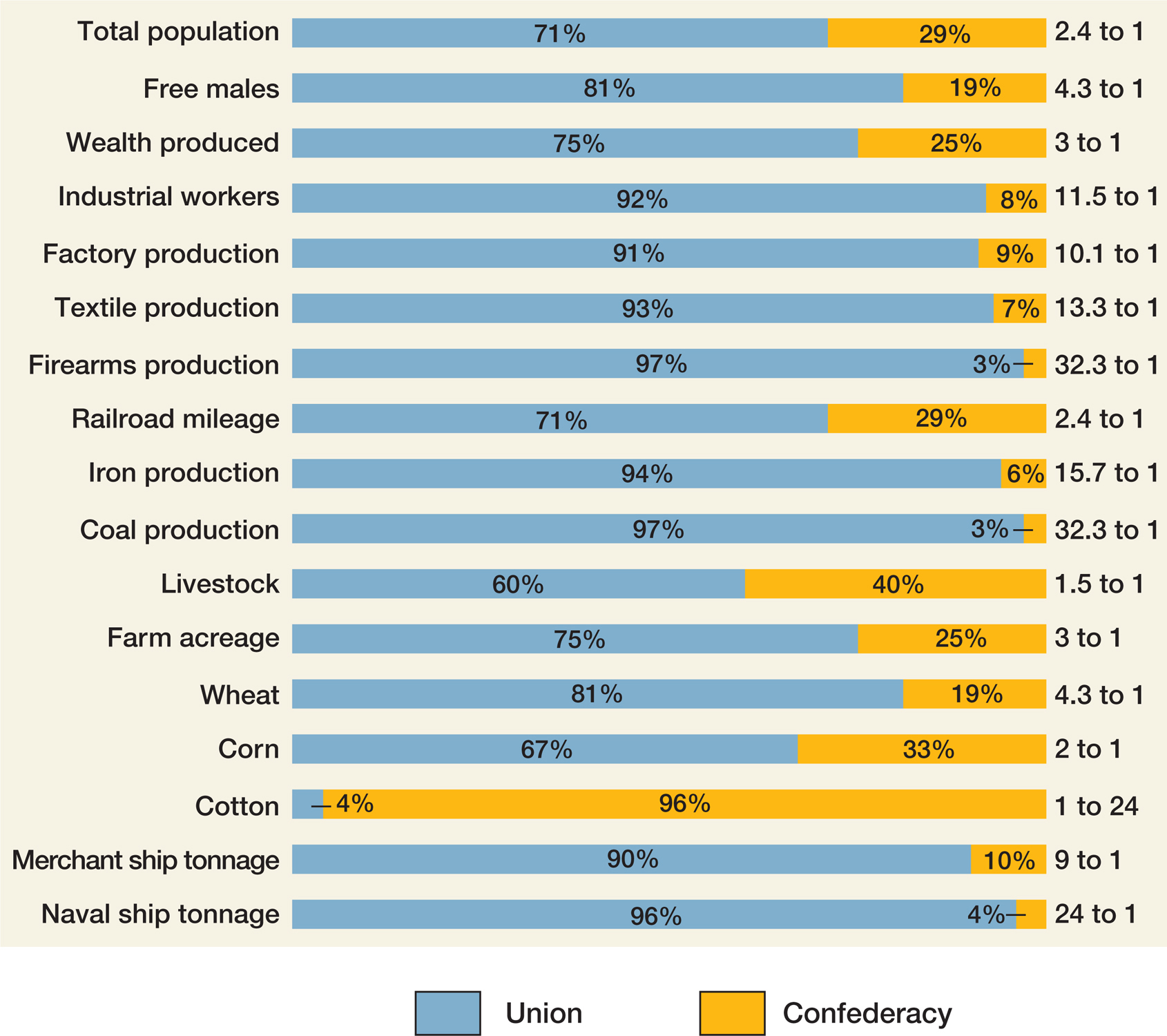How They Expected to Win

The balance sheet of northern and southern resources reveals enormous advantages for the Union (Figure 15.1). The twenty-
Southerners knew they bucked the military odds, but hadn’t the liberty-
The South’s confidence also rested on its belief that northern prosperity depended on the South’s cotton. Without cotton, New England textile mills would stand idle. Without planters purchasing northern manufactured goods, northern factories would drown in their own unsold surpluses. And without the foreign exchange earned by the overseas sales of cotton, the financial structure of the entire Yankee nation would collapse. A Virginian spoke for most Confederates when he declared that in the South’s ability to “withhold the benefits of our trade, we hold a power over the North more powerful than a powerful army in the field.”
Cotton would also make Europe a powerful ally of the Confederacy, Southerners reasoned. Of the 900 million pounds of cotton Britain imported annually, more than 700 million pounds came from the American South. If the supply was interrupted, sheer economic need would make Britain (and perhaps France) a Confederate ally. And because the British navy ruled the seas, the North would find Britain a formidable foe.
The Confederacy devised a military strategy to exploit its advantages and minimize its limitations. It recognized that a Union victory required the North to defeat and subjugate the South, but a Confederate victory required only that the South stay at home, blunt invasions, avoid battles that risked annihilating its army, and outlast the North’s will to fight. When an opportunity presented itself, the South would strike the invaders. Like the American colonists, the South could win independence by not losing the war.
The Lincoln administration countered with an aggressive strategy designed to take advantage of its superior resources. Lincoln declared a naval blockade of the Confederacy to deny it the ability to sell cotton abroad, giving the South far fewer dollars to pay for war goods. Lincoln also ordered the Union army into Virginia, at the same time planning a march through the Mississippi valley that would cut the Confederacy in two.
Most Americans thought of war in terms of their most recent experience, the Mexican-